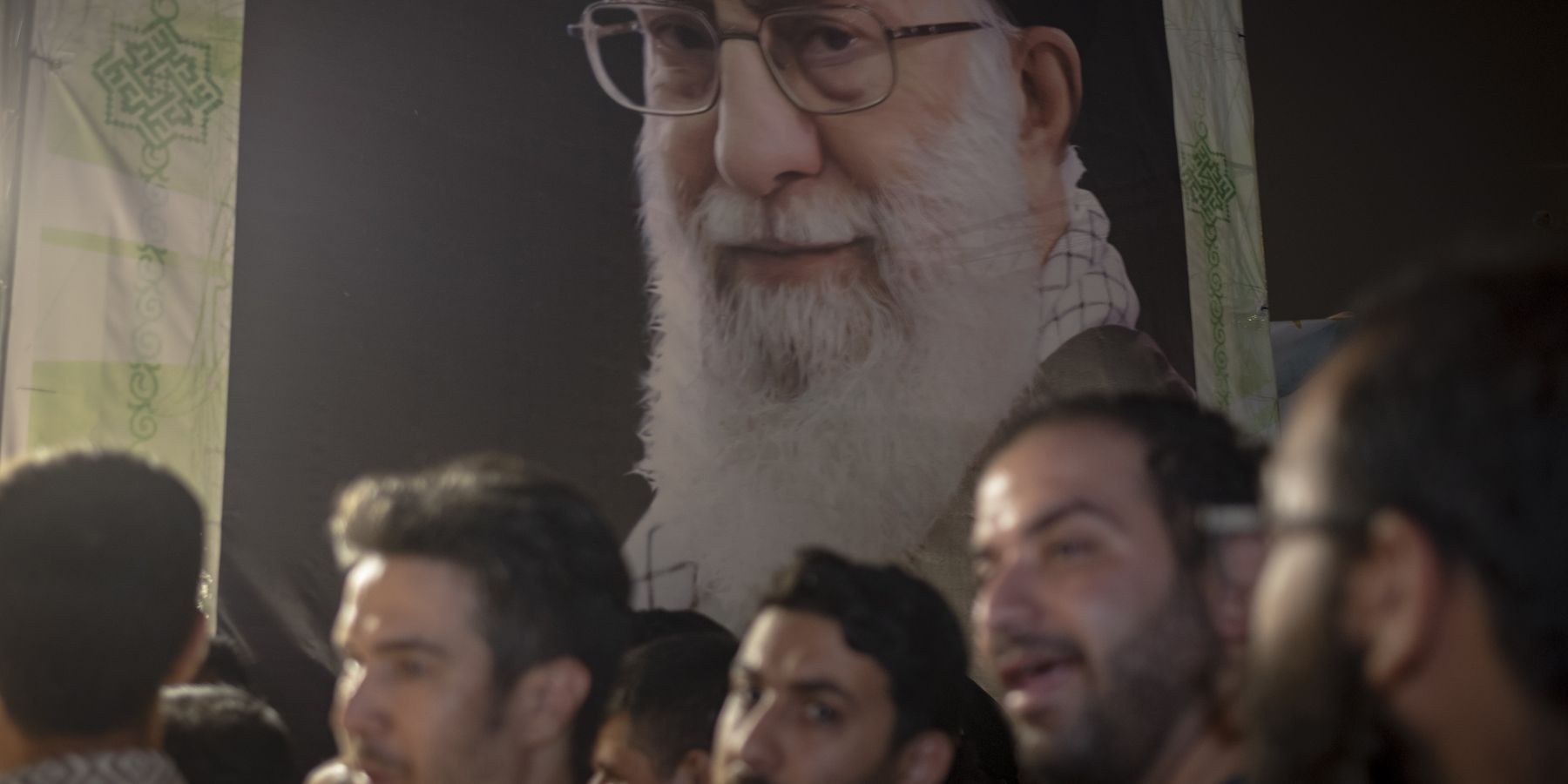As Iran ponders its response to Israel’s October 26 aerial attack — conducted in retaliation for Iran’s strikes on Israel on October 1, the latest in an escalating spiral between the two foes — European leaders called on Tehran to forgo yet another response.
British Prime Minister Keir Starmer urged both Iran and Israel to “show restraint” and “avoid further regional escalation,” but singled out Iran as the party that should not respond. German Chancellor Olaf Scholz, in a similar vein, warned Iran that “such massive escalatory responses cannot go on forever. This has to stop now and presents an opportunity for a peaceful development in the Middle East.” Scholz took care to emphasize Israel’s “precise and targeted” attack in contrast to the “massive missile attack against Israel” (by Iran).
These urgings, however, may go unheeded. For one, despite Scholz’s attempts to contrast the targeted Israeli strike with what he implied was reckless Iranian action, one casualty from falling debris resulted from the Iranian missile attack, while at least four people (reportedly all military personnel) were killed in the Israeli strikes on military targets in Tehran, Khuzestan, and Elam.
Although there were no immediate vows of vengeance in Tehran — a contrast to what happened after Israel’s attack on the Iranian consulate in Damascus in April and the assassination of the Hamas political leader Ismail Haniyeh in Tehran in July — its leadership has not ruled out retaliation. Supreme Leader Ayatollah Ali Khamenei seemed to delegate the precise nature and scope of the response to military commanders. According to Amwaj.media, he insisted that while Israel “seeks to exaggerate the attack for its own goals, it would be wrong for us to downplay it.”
Herein lies the key to understanding Iran’s predicament: it’s a delicate balancing act between the need to avoid an all-out war with Israel (and, potentially, the United States), and the political unpalatability of accepting the strikes on Tehran as a new normal — the first such strikes on Iran’s territory since the Iran-Iraq war in the 1980s.
Most Iranians are understandably wary of a broader conflict and would rather focus on the economy. Witness accounts from Tehran suggest that, in the immediate aftermath of the Israeli attack, life went back to normal, demonstrating the population’s resilience and perhaps hopes that a further escalation may still be avoided.
However, refraining from action would project weakness to Iran’s allies in the region and to its own population: there is a fear that a normalization of attacks on Tehran and other Iranian cities would further erase whatever red lines existed and encourage Israel to treat Tehran the same way it does Damascus and Beirut; i.e., bomb it at will.
While the strikes have so far only concerned the military targets, what is to dissuade, in this reading, Israel from targeting the economic infrastructure next time in the absence of a credible deterrence? A return to the “shadow war” between Iran and Israel, the status quo before October 7, 2023, may now seem insufficient from Tehran’s point of view given Israel’s increasing willingness to take risks and its weakening of Iran’s key allies, such as the Lebanese Shiite militia Hezbollah.
These considerations suggest that some kind of Iranian retaliation by Iran is probable. A search for a restored deterrence also increases pressure on Ayatollah Khamenei to reconsider his fatwa (religious edict) that outlaws the development of weapons of mass destruction. With each new escalation, public sentiment appears to move towards favoring the weaponization of Iran’s nuclear program as the ultimate deterrent. Short of the nuclear option, delivering on Tehran’s threats to block the Strait of Hormuz, the key artery for the world oil trade, is another card Tehran holds up its sleeve in the event that the conflict escalates further.
There is, however, a window of opportunity to avoid dreadful outcomes. By choosing to downplay the latest Israeli attack and delay its own response, Tehran may be able to leverage Western anxiety over the possibility of further escalation for a diplomatic breakthrough on Gaza and Lebanon.
Accordingly, if Western leaders like the UK’s Starmer and Germany’s Scholz are truly concerned about the prospects for an ever-widening war in the Middle East, they should not simply call on Iran not to respond to Israel’s attacks, but also work diligently towards securing the single most important outcome — ceasefires in Gaza, and then Lebanon. That would not only stop the killing of civilians (more than 43,000 and counting in Gaza and, at a minimum, 1,200 in Lebanon) and the release of the Israeli hostages still being held by Hamas. It would also enable Tehran, by stopping the escalatory tit for tat, to claim a diplomatic success and remove the pressure to respond to Israel militarily.
So far, the UK and Germany have provided nearly unconditional support for Israel’s right to self-defense while paying only lip service to the need to respect international law and the laws of war in its exercise. This will have to change, lest Starmer and Scholz’s one-sided exhortations to Iran will keep falling on deaf ears and condemning Europe to greater strategic and diplomatic irrelevance.
- The day after Israeli strikes on Iran: What's next ›
- Who leaked US classified docs on potential Israeli attack plans? ›
















